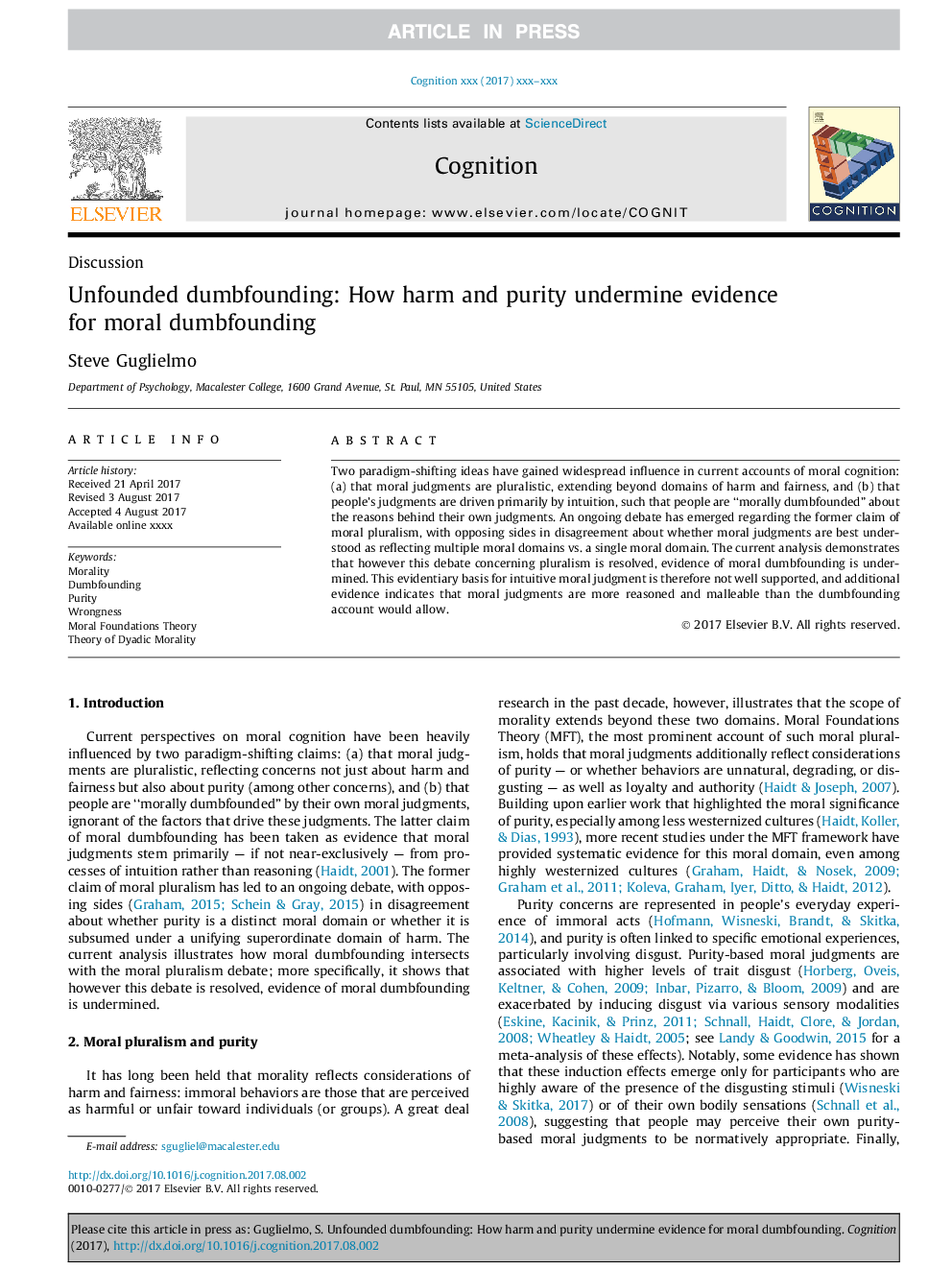| Article ID | Journal | Published Year | Pages | File Type |
|---|---|---|---|---|
| 7285726 | Cognition | 2018 | 4 Pages |
Abstract
Two paradigm-shifting ideas have gained widespread influence in current accounts of moral cognition: (a) that moral judgments are pluralistic, extending beyond domains of harm and fairness, and (b) that people's judgments are driven primarily by intuition, such that people are “morally dumbfounded” about the reasons behind their own judgments. An ongoing debate has emerged regarding the former claim of moral pluralism, with opposing sides in disagreement about whether moral judgments are best understood as reflecting multiple moral domains vs. a single moral domain. The current analysis demonstrates that however this debate concerning pluralism is resolved, evidence of moral dumbfounding is undermined. This evidentiary basis for intuitive moral judgment is therefore not well supported, and additional evidence indicates that moral judgments are more reasoned and malleable than the dumbfounding account would allow.
Related Topics
Life Sciences
Neuroscience
Cognitive Neuroscience
Authors
Steve Guglielmo,
